AI may appear human, but it is an illusion we must tackle.


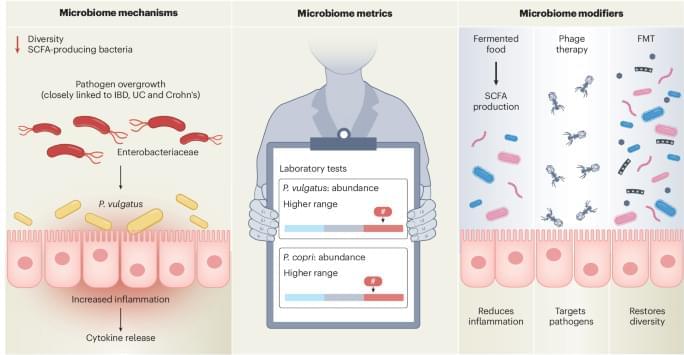
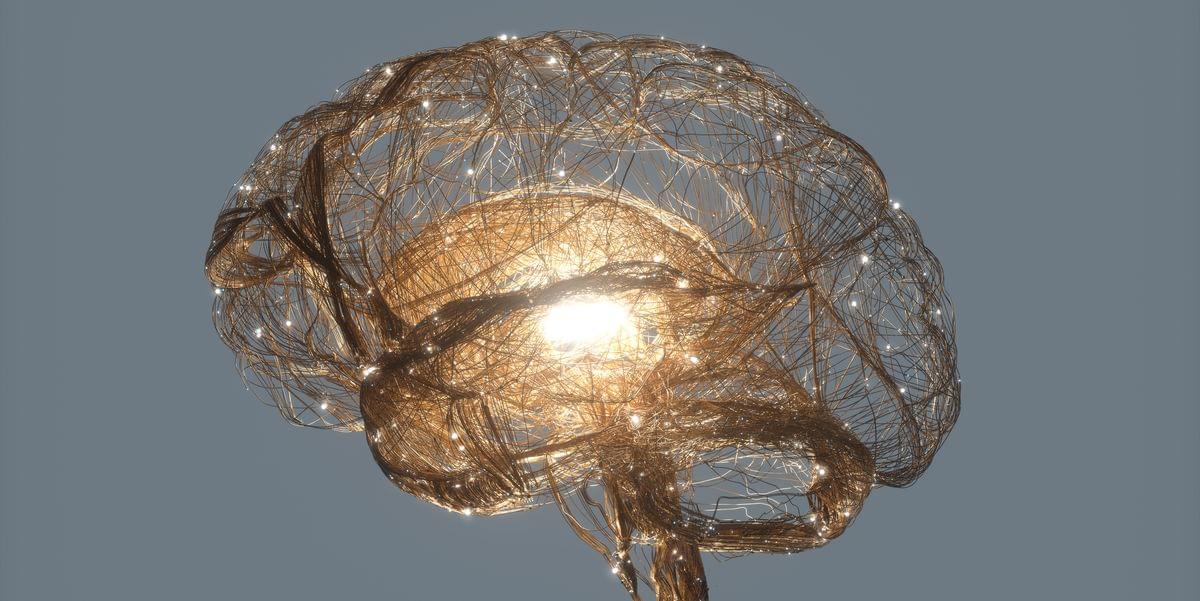
American composer Alvin Lucier was well-known for his experimental works that tested the boundaries of music and art. A longtime professor at Wesleyan University (before retiring in 2011), Alvin passed away in 2021 at the age of 90. However, that wasn’t the end of his lifelong musical odyssey.
Earlier this month, at the Art Gallery of Western Australia, a new art installation titled Revivification used Lucier’s “brain matter”—hooked up to an electrode mesh connected to twenty large brass plates—to create electrical signals that triggered a mallet to strike the varying plates, creating a kind of post-mortem musical piece. Conceptualized in collaboration with Lucier himself before his death, the artists solicited the help of researchers from Harvard Medical School, who grew a mini-brain from Lucier’s white blood cells. The team created stem cells from these white blood cells, and due to their pluripotency, the cells developed into cerebral organoids somewhat similar to developing human brains.
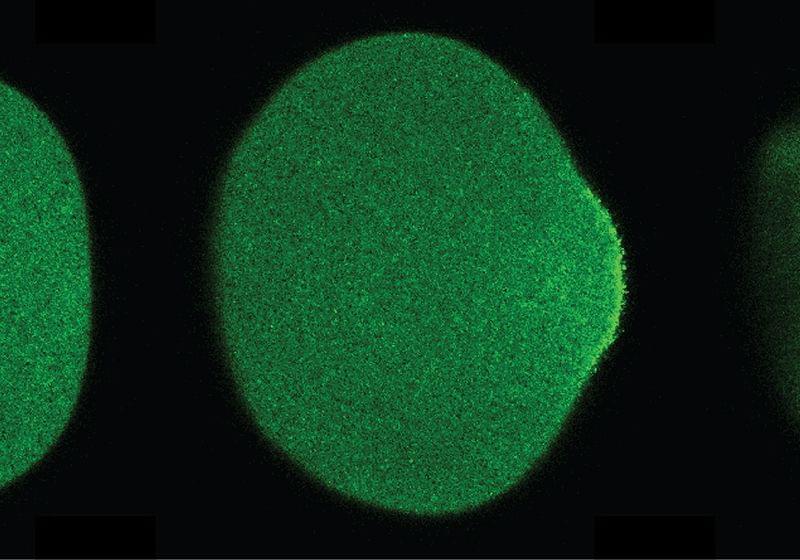
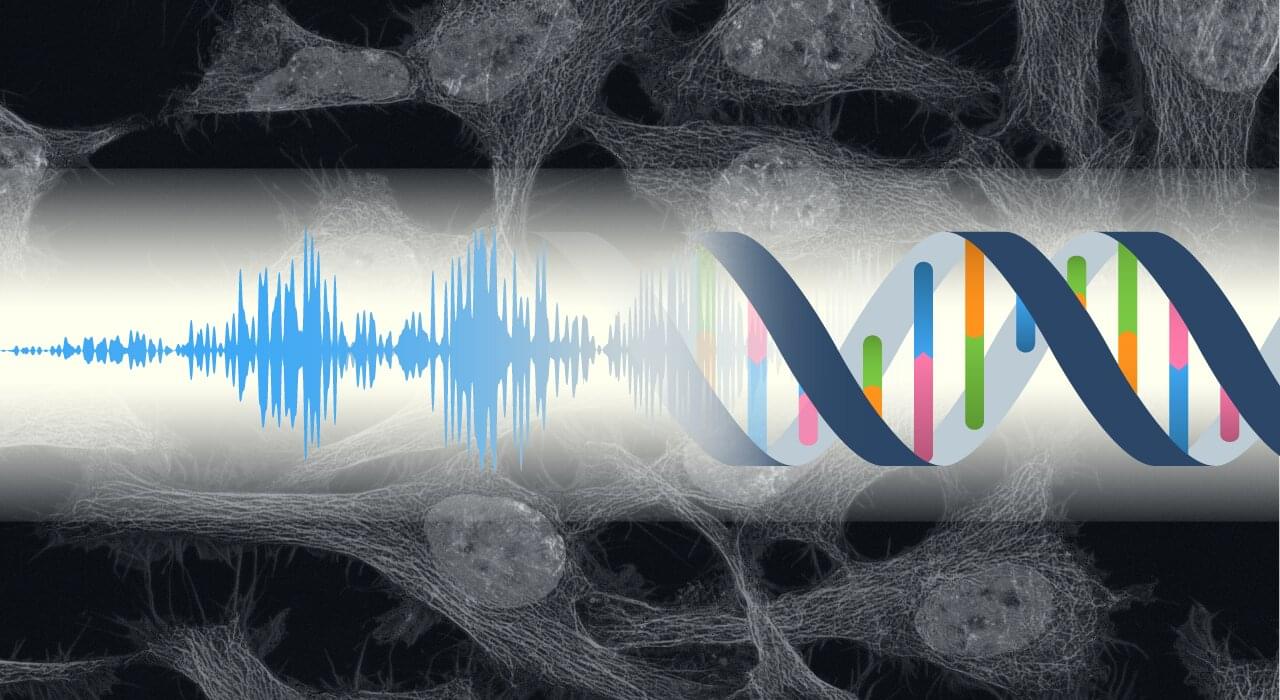
There’s a sensation that you experience—near a plane taking off or a speaker bank at a concert—from a sound so total that you feel it in your very being. When this happens, not only do your brain and ears perceive it, but your cells may also.
Technically speaking, sound is a simple phenomenon, consisting of compressional mechanical waves transmitted through substances which exist universally in the non-equilibrated material world. Sound is also a vital source of environmental information for living beings, while its capacity to induce physiological responses at the cell level is only just beginning to be understood.
Following on from previous work from 2018, a team of researchers at Kyoto University have been inspired by research in mechanobiology and body-conducted sound—the sound environment in body tissues —indicating that acoustic pressure transmitted by sound may be sufficient to induce cellular responses.


Physicists at Harvard have developed a powerful new laser-on-a-chip that emits bright pulses in the mid-infrared spectrum – an elusive and highly useful light range for detecting gases and enabling new spectroscopic tools.
The device, which packs capabilities of much larger systems into a tiny chip, doesn’t need any external components. It merges breakthrough photonic design with quantum cascade laser tech and could soon revolutionize environmental monitoring and medical diagnostics by detecting thousands of light frequencies in one go.
Breakthrough in compact mid-infrared laser technology.
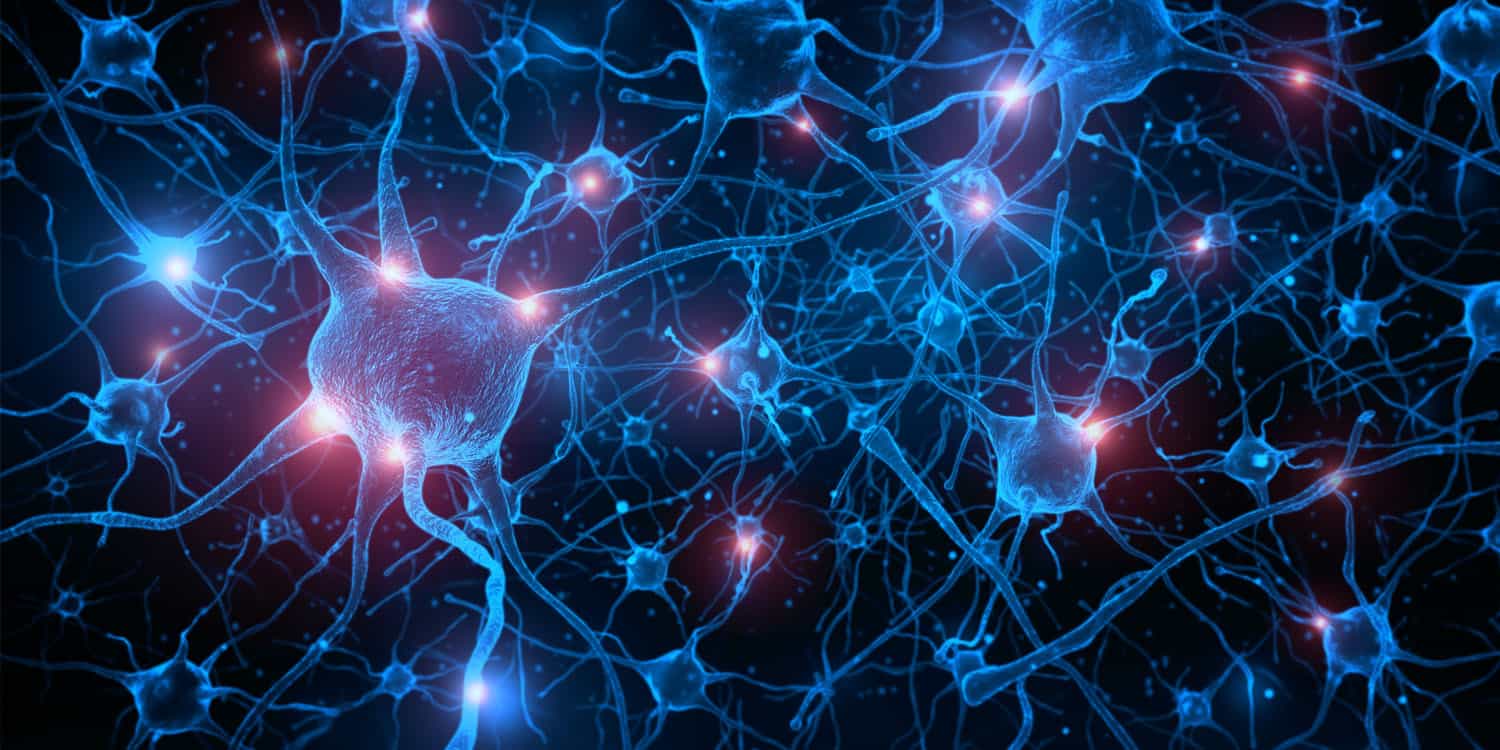

All manner of companies and tech leaders have been predicting when AGI will be achieved, but we might have one of the surest signs that it’s already here — or is just around the corner.
Google Deepmind is hiring a Post-AGI researcher for its London office. As per a job listing on internet boards, Google Deepmind is looking for a “Research Scientist, Post-AGI Research”. “We are seeking a Research Scientist to explore the profound impact of what comes after AGI,” the job listing says.
“At Google DeepMind, we’ve built a unique culture and work environment where long-term ambitious research can flourish. We are seeking a highly motivated Research Scientist to join our team and contribute to groundbreaking research that will focus on what comes after Artificial General Intelligence (AGI). Key questions include the trajectory of AGI to artificial superintelligence (ASI), machine consciousness, the impact of AGI on the foundations of human society,” says the job listing.
Elon Musk’s Tesla is on the verge of launching a self-driving platform that could revolutionize transportation with millions of affordable robotaxis, positioning the company to outpace competitors like Uber ## ## Questions to inspire discussion ## Tesla’s Autonomous Driving Revolution.
🚗 Q: How is Tesla’s unsupervised FSD already at scale? A: Tesla’s unsupervised FSD is currently deployed in 7 million vehicles, with millions of units of hardware 4 dormant in older vehicles, available at a price point of $30,000 or less.
🏭 Q: What makes Tesla’s autonomous driving solution unique? A: Tesla’s solution is vertically integrated with end-to-end ownership of the entire system, including silicon design, software platform, and OEM, allowing them to keep costs low and push down utilization on ride-sharing networks. Impact on Ride-Sharing Industry.
💼 Q: How will Tesla’s autonomous vehicles affect Uber drivers? A: Tesla’s unsupervised self-driving cars will likely replace Uber’s 1.2 million US drivers, being 4x more useful due to no breaks and no human presence, operating at a per-mile cost below 50% of current Uber rates.
💰 Q: What economic pressure will Tesla’s solution put on Uber? A: Tesla’s autonomous driving solution will create tremendous pressure on Uber, with its cost structure acting as a magnet for high utilization, maintaining low pre-pressure costs for Tesla due to their fundamentally different design. Future Implications.
🤝 Q: What potential strategy might Uber adopt to compete with Tesla? A: Uber may need to approach Tesla to pre-buy their first 2 million Cyber Caps upfront, including production costs, as potentially the only path to compete with Tesla’s autonomous driving solution.